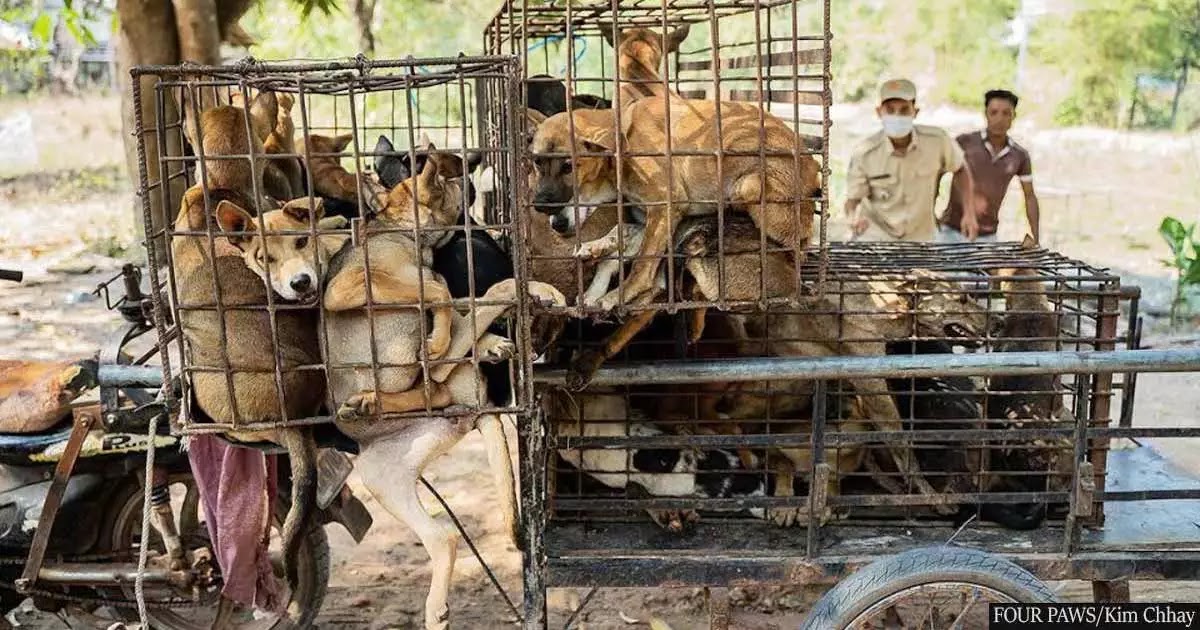
It has been reported by the UK newspaper Daily Mail that 61 dogs and puppies have been saved on their way to a Cambodian slaughterhouse where they were going to be turned into dog-meat for human consumption.
The animals, which were being exploited illegally, were discovered and rescued in a joint operation by Siem Reap Provincial Department of Agriculture and local police. All of the dogs were crammed into just 6 cages and included both stray street dogs and dogs that had been stolen from their owners. Many of the canines were suffering from dehydration and malnutrition but are thankfully expected to make a full recovery. All the dogs are now being taken care of by 'The Four Paws' animal charity. This is the first such seizure of dogs since a ban on dog-meat was passed by the Cambodian parliament last year.
Dr. Katherine Polak, a veterinarian with The Four Paws charity, told reporters:
"Most of them are young dogs and showed signs of severe heat exhaustion and dehydration. It is unclear how long these dogs were in the van or at a holding area before being loaded onto the vehicle. All were extremely hungry, most likely not having eaten in days. We are currently preparing off-site premises where the dogs will be safe and cared for until we have found new homes for them. This first-of-its-kind interception hopefully sends a loud and clear message to traffickers across Cambodia that future dog meat trading will no longer be tolerated."
🐕 Breakthrough with Cambodian dog slaughterhouse 🇰🇭
— FOUR PAWS (@fourpawsint) February 25, 2021
After the incredible rescue of 61 dogs🐕, we thought this week couldn't get any better. Now we have the opportunity to shut the horrific dog slaughterhouse near Phnom Penh down. https://t.co/n1pJfRQuap pic.twitter.com/fLMRYZAIfW
It is estimated that in Siem Reap, which is regarded as the centre of the dog-meat industry, that as many as 3,750 dogs are killed every month. At these slaughterhouses, the dogs are killed by stabbing, hanging and drowning and then their meat is sold on to underground dog-meat restaurants in the nation's capital Phnom Penh. It is thought that as many as 100 of these restaurants exist in the capital.
Dr. Karanvir Kukreja, a campaigner against the dog-meat industry, said in a statement:
"Through education and cooperation with the responsible authorities and tourism associations, the aim is to urge governments to introduce and enforce legislation banning the dog and cat meat trade to protect both animal and public health."
In Cambodia and across Asia, the eating of dogs has become much more taboo over recent decades and such meat is generally avoided by younger generations. This change in attitudes has become cemented as a result of more Asian populations to have dogs as pets.
[h/t: Daily Mail]













COMMENTS